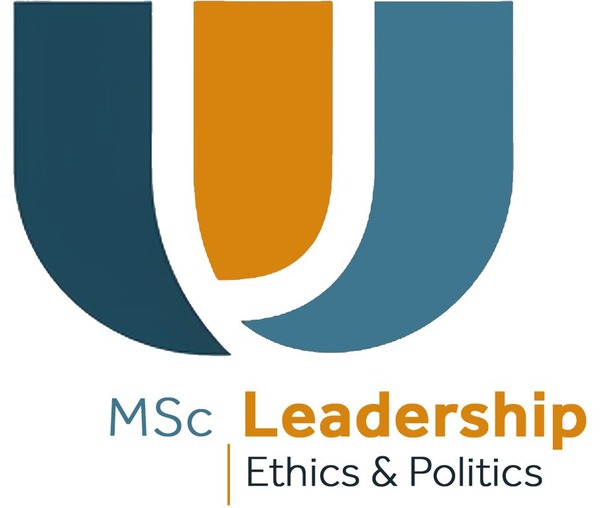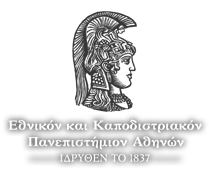Authority and Institutional Discourse (LEPC3)
Ευάγγελος Πρωτοπαπαδάκης
It is generally accepted that leadership involves and presupposes the phenomena of authority and institutionalization. Consequently, leadership must be examined in relation to these two fundamental dimensions. The exercise of leadership necessitates the invocation and exercise of some form of authority, even in leadership styles that are collaborative or collegiate. Authority may be tangible, knowledge-based, person-based, or institutional. The recourse to authority may often be institutionalized, and authority frequently acquires institutional status. Therefore, the study of the specific epistemological (gnoseological) weight of authority is required. Furthermore, leadership is enacted through a series of conflicts and struggles related to the establishment of institutions and the development of institutional arguments and institutions. Here, authority plays a role but is not conclusive. Leadership cannot be understood without exploring these two factors, authority, and institutional discourse.
LessIt is generally accepted that leadership involves and presupposes the phenomena of authority and institutionalization. Consequently, leadership must be examined in relation to these two fundamental dimensions. The exercise of leadership necessitates the invocation and exercise of some form of authority, even in leadership styles that are collaborative or collegiate. Authority may be tangible, knowledge-based, person-based, or institutional. The recourse to authority may often be institutionalized, and authority frequently acquires institutional status. Therefore, the study of the specific epistemological (gnoseological) weight of authority is required. Furthermore, leadership is enacted through a series of conflicts and struggles related to the establishment of institutions and the development of institutional arguments and institutions. Here, authority plays a role but is not conclusive. Leadership cannot be understood without exploring these two factors, authority, and institutional
It is generally accepted that leadership involves and presupposes the phenomena of authority and institutionalization. Consequently, leadership must be examined in relation to these two fundamental dimensions. The exercise of leadership necessitates the invocation and exercise of some form of authority, even in leadership styles that are collaborative or collegiate. Authority may be tangible, knowledge-based, person-based, or institutional. The recourse to authority may often be institutionalized, and authority frequently acquires institutional status. Therefore, the study of the specific epistemological (gnoseological) weight of authority is required. Furthermore, leadership is enacted through a series of conflicts and struggles related to the establishment of institutions and the development of institutional arguments and institutions. Here, authority plays a role but is not conclusive. Leadership cannot be understood without exploring these two factors, authority, and institutional
Syllabus
Course Syllabus
I. What is authority (philosophy - epistemology).
II. What is institutional discourse (philosophical genealogy of institutional discourses)
III. Leadership versus authority.
IV. Leadership and institutional discourses (ethical participation, rhetoric, philosophy of conflicts).
V. Authority in conflict with institutional discourses.
VI. Leadership without authority.
VII. Philosophy of history for the development of institutional discourses.
VIII. Authority and virtues
IX. Authority and politics
X. Formation of authority
XI. Authority and political theology
XII. Authority and authoritarianism
XIII. Authority and law.
XIV. Authority, Institutional Discourse, and Interculturality.
Course Objectives/Goals
• Familiarization with the concept of institution and institutional discourse.
• Recognition of the role of authority in the life of institutions and in the unfolding of the phenomenon and mechanisms of leadership.
• Highlighting the relationships between authority and institutional discourse.
• Decision-making on leadership will be examined from the perspective of forms of authority and conflicts at the level of institutional discourse.
• Study of leadership as the origin of both authority and institutional discourse phenomena.
• Emphasis on the need for philosophical and epistemological training of young researchers and scientists to address manifestations of institutionalism and authority in practice.
• Beyond the broader framework, the specific approach to the philosophy/epistemology of authority and the processes of developing institutional discourses will be analyzed.
Instructional Methods
This course employs a dynamic blend of instructional methods to ensure a comprehensive learning experience. With a focus on engagement and flexibility, the instructional approach comprises 75% face-to-face teaching, fostering direct interaction between instructors and students in a traditional classroom setting. Additionally, 25% of the course involves distant teaching, which can be delivered either synchronously or asynchronously. This remote component allows students to access course materials, participate in discussions, and engage with learning activities at their own pace, leveraging online platforms and resources. By combining face-to-face interaction with remote learning opportunities, the course aims to cater to diverse learning styles and preferences, facilitating deeper understanding and collaboration among students while accommodating individual schedules and needs.
Assessment Methods
- 20%: Participation
- 20%: Oral presentation
- 60%: Written assignment
Prerequisites/Prior Knowledge
This module has no prerequisites in the curriculum or prior knowledge requirements.
Instructors
Instructors for the course will be announced shortly.
Textbooks
To be added soon.
Bibliography
- The Sophists (fragments)
- Plato, The Sophist
- Aristotle, Rhetorics
- Hobbes, Thomas, 1668, Leviathan, Edwin Curley (ed.), Indianapolis: Hackett Publishers, 1992.
- Weber, Max, 1918, “Politics as a Vocation,” in From Max Weber: Essays in Sociology, H. H. Gerth and C. Wright Mills (eds.), London: Routledge and Kegan Paul, 1970.
- Anti-humanisme et discours institutionnel à Byzance. Le cas Kekaumenos, Alessandria, Edizioni dell'Orso, "Hellenica", 2021.
- Hannah Arendt, "Authority in the Twentieth Century." Review of Politics (1956)
- Hannah Arendt, On Violence (1970).
- Carl Joachim Friedrich, Tradition and Authority. London: Macmillan (1972)
- Sebastian De Grazia. (1959). "What Authority Is Not". American Political Science Review 53(2): 321–331.
- Rosen, Arie (2023). "Political Reasons and the Limits of Political Authority." Legal Theory 29 (1): 63–88.
- Jean-Michel David, Frédéric Hurlet (eds), L'auctoritas à Rome: Une notion constitutive de la culture politique, Ausonius Éditions, 2023.
- Jenny Bryan, Robert Wardy, James Warren (eds), Authors and Authorities in Ancient Philosophy, Cambridge University Press, 2018
- Claire Cutler, Virginia Haufler, Tony Porter (eds), Private Authority and International Affairs, SUNY Press, 1999
- Tristan J. Rogers, The Authority of Virtue: Institutions and Character in the Good Society, Routledge, 2020
- Aaron Stalnaker, Mastery, Dependence, and the Ethics of Authority, Oxford University Press, 2019
- Bertrand Russell, Authority and the Individual, Routledge, 2005.
- Başak Cali, The Authority of International Law: Obedience, Respect, and Rebuttal, Oxford University Press, 2015
- Shari Boodts, Johan Leemans, Brigitte Meijns (eds), Shaping Authority: How Did a Person Become an Authority in Antiquity, the Middle Ages and the Renaissance?, Brepols, 2016.
I. What is authority (philosophy - epistemology).
II. What is institutional discourse (philosophical genealogy of institutional discourses)
III. Leadership versus authority.
IV. Leadership and institutional discourses (ethical participation, rhetoric, philosophy of conflicts).
V. Authority in conflict with institutional discourses.
VI. Leadership without authority.
VII. Philosophy of history for the development of institutional discourses.
VIII. Authority and virtues
IX. Authority and politics
X. Formation of authority
XI. Authority and political theology
XII. Authority and authoritarianism
XIII. Authority and law.
XIV. Authority, Institutional Discourse, and Interculturality.
• Familiarization with the concept of institution and institutional discourse.
• Recognition of the role of authority in the life of institutions and in the unfolding of the phenomenon and mechanisms of leadership.
• Highlighting the relationships between authority and institutional discourse.
• Decision-making on leadership will be examined from the perspective of forms of authority and conflicts at the level of institutional discourse.
• Study of leadership as the origin of both authority and institutional discourse phenomena.
• Emphasis on the need for philosophical and epistemological training of young researchers and scientists to address manifestations of institutionalism and authority in practice.
• Beyond the broader framework, the specific approach to the philosophy/epistemology of authority and the processes of developing institutional discourses will be analyzed.
This course employs a dynamic blend of instructional methods to ensure a comprehensive learning experience. With a focus on engagement and flexibility, the instructional approach comprises 75% face-to-face teaching, fostering direct interaction between instructors and students in a traditional classroom setting. Additionally, 25% of the course involves distant teaching, which can be delivered either synchronously or asynchronously. This remote component allows students to access course materials, participate in discussions, and engage with learning activities at their own pace, leveraging online platforms and resources. By combining face-to-face interaction with remote learning opportunities, the course aims to cater to diverse learning styles and preferences, facilitating deeper understanding and collaboration among students while accommodating individual schedules and needs.
- 20%: Participation
- 20%: Oral presentation
- 60%: Written assignment
This module has no prerequisites in the curriculum or prior knowledge requirements.
Instructors for the course will be announced shortly.
To be added soon.
- The Sophists (fragments)
- Plato, The Sophist
- Aristotle, Rhetorics
- Hobbes, Thomas, 1668, Leviathan, Edwin Curley (ed.), Indianapolis: Hackett Publishers, 1992.
- Weber, Max, 1918, “Politics as a Vocation,” in From Max Weber: Essays in Sociology, H. H. Gerth and C. Wright Mills (eds.), London: Routledge and Kegan Paul, 1970.
- Anti-humanisme et discours institutionnel à Byzance. Le cas Kekaumenos, Alessandria, Edizioni dell'Orso, "Hellenica", 2021.
- Hannah Arendt, "Authority in the Twentieth Century." Review of Politics (1956)
- Hannah Arendt, On Violence (1970).
- Carl Joachim Friedrich, Tradition and Authority. London: Macmillan (1972)
- Sebastian De Grazia. (1959). "What Authority Is Not". American Political Science Review 53(2): 321–331.
- Rosen, Arie (2023). "Political Reasons and the Limits of Political Authority." Legal Theory 29 (1): 63–88.
- Jean-Michel David, Frédéric Hurlet (eds), L'auctoritas à Rome: Une notion constitutive de la culture politique, Ausonius Éditions, 2023.
- Jenny Bryan, Robert Wardy, James Warren (eds), Authors and Authorities in Ancient Philosophy, Cambridge University Press, 2018
- Claire Cutler, Virginia Haufler, Tony Porter (eds), Private Authority and International Affairs, SUNY Press, 1999
- Tristan J. Rogers, The Authority of Virtue: Institutions and Character in the Good Society, Routledge, 2020
- Aaron Stalnaker, Mastery, Dependence, and the Ethics of Authority, Oxford University Press, 2019
- Bertrand Russell, Authority and the Individual, Routledge, 2005.
- Başak Cali, The Authority of International Law: Obedience, Respect, and Rebuttal, Oxford University Press, 2015
- Shari Boodts, Johan Leemans, Brigitte Meijns (eds), Shaping Authority: How Did a Person Become an Authority in Antiquity, the Middle Ages and the Renaissance?, Brepols, 2016.
Calendar
Announcements
- - There are no announcements -

